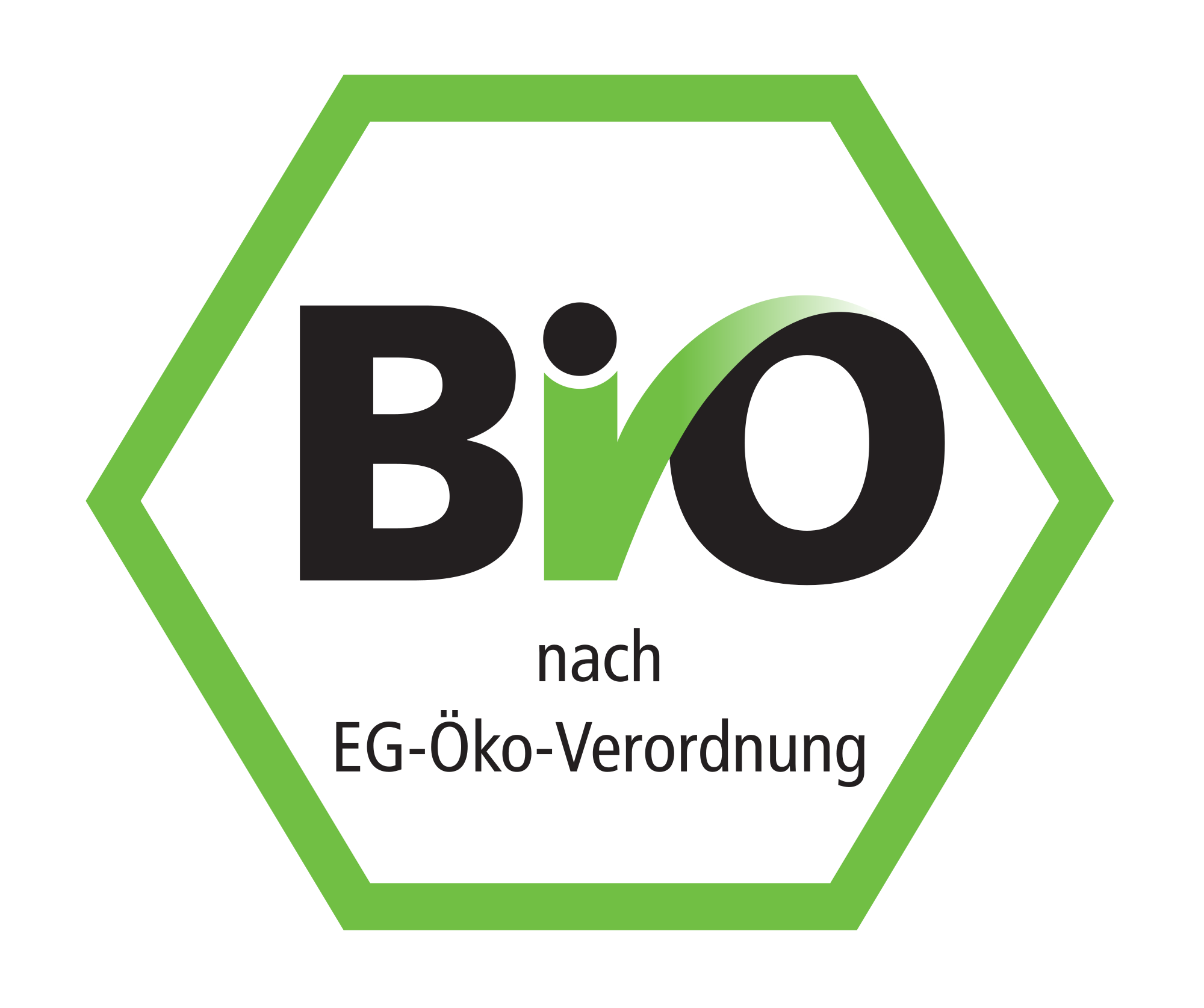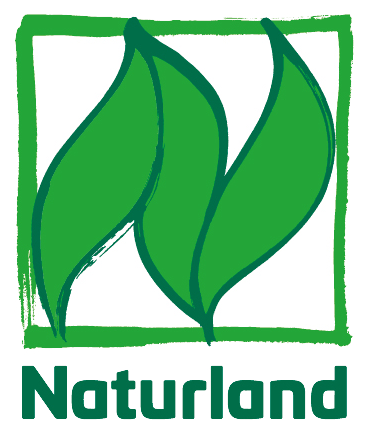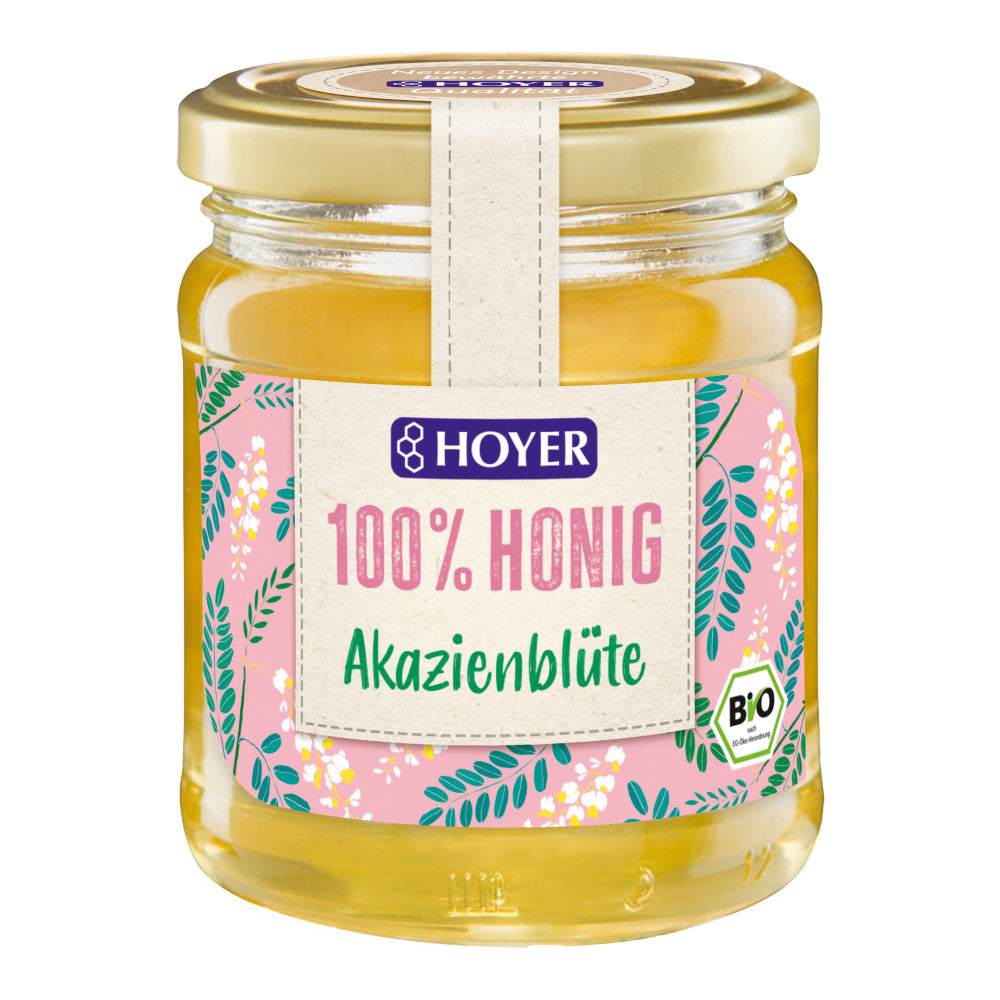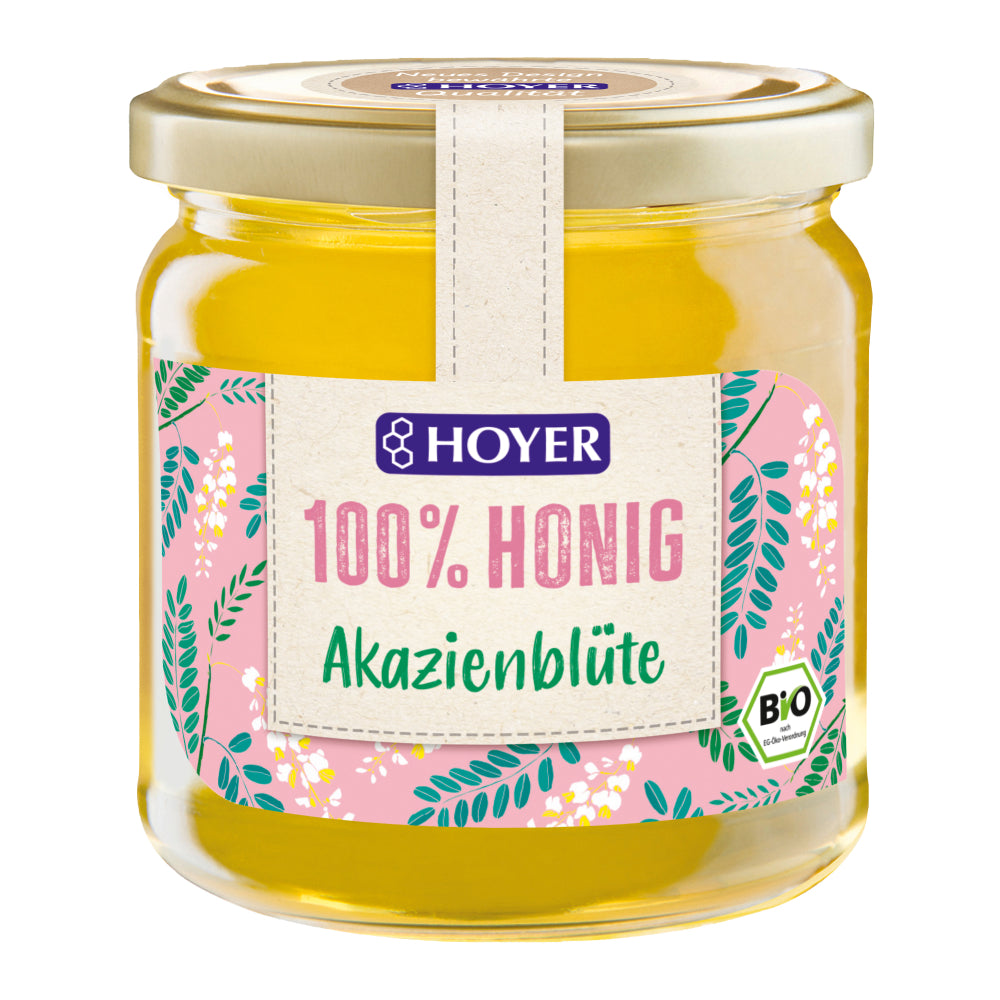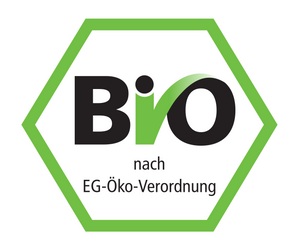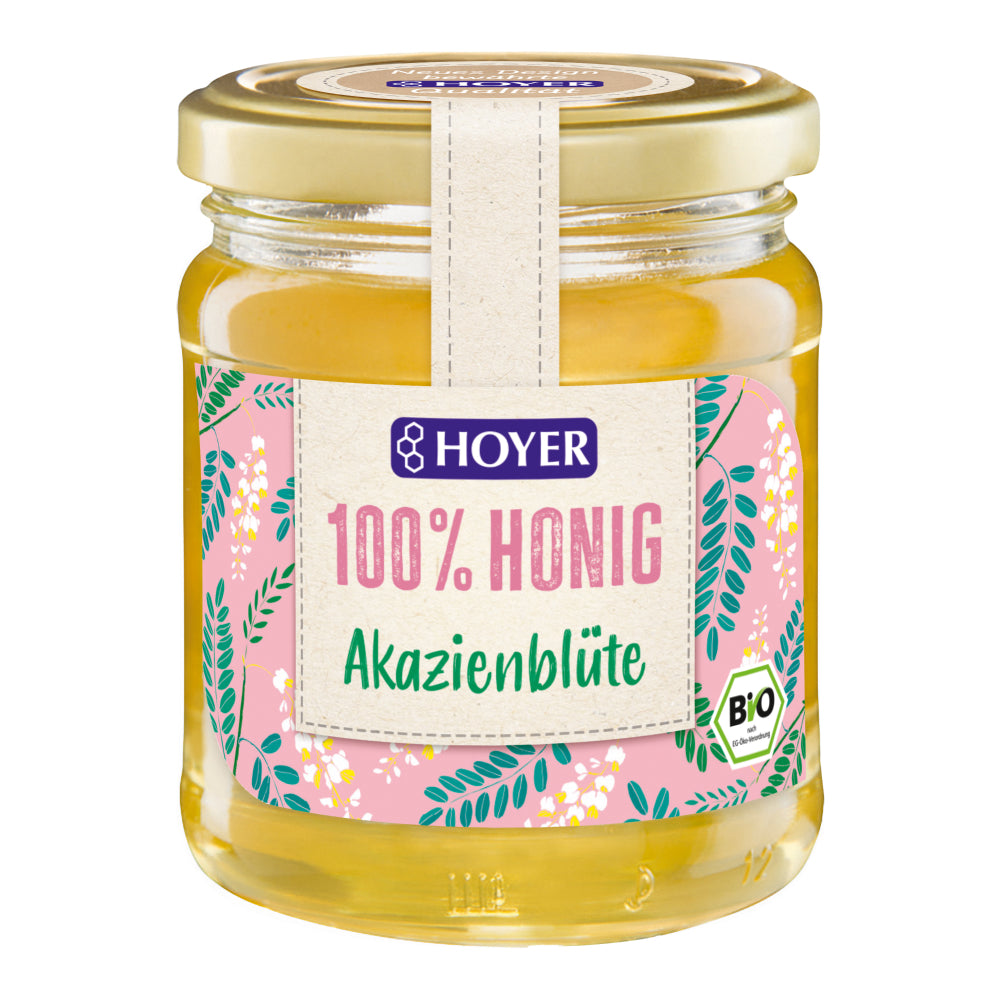
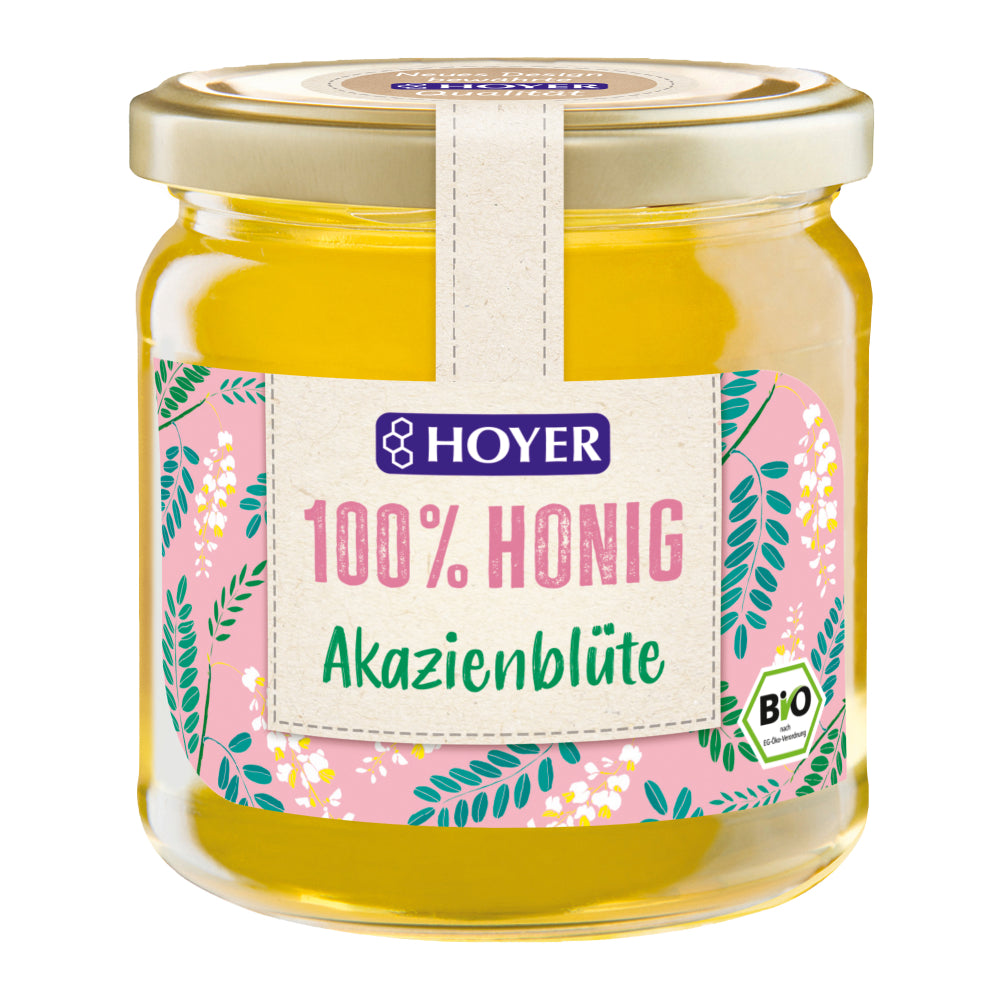
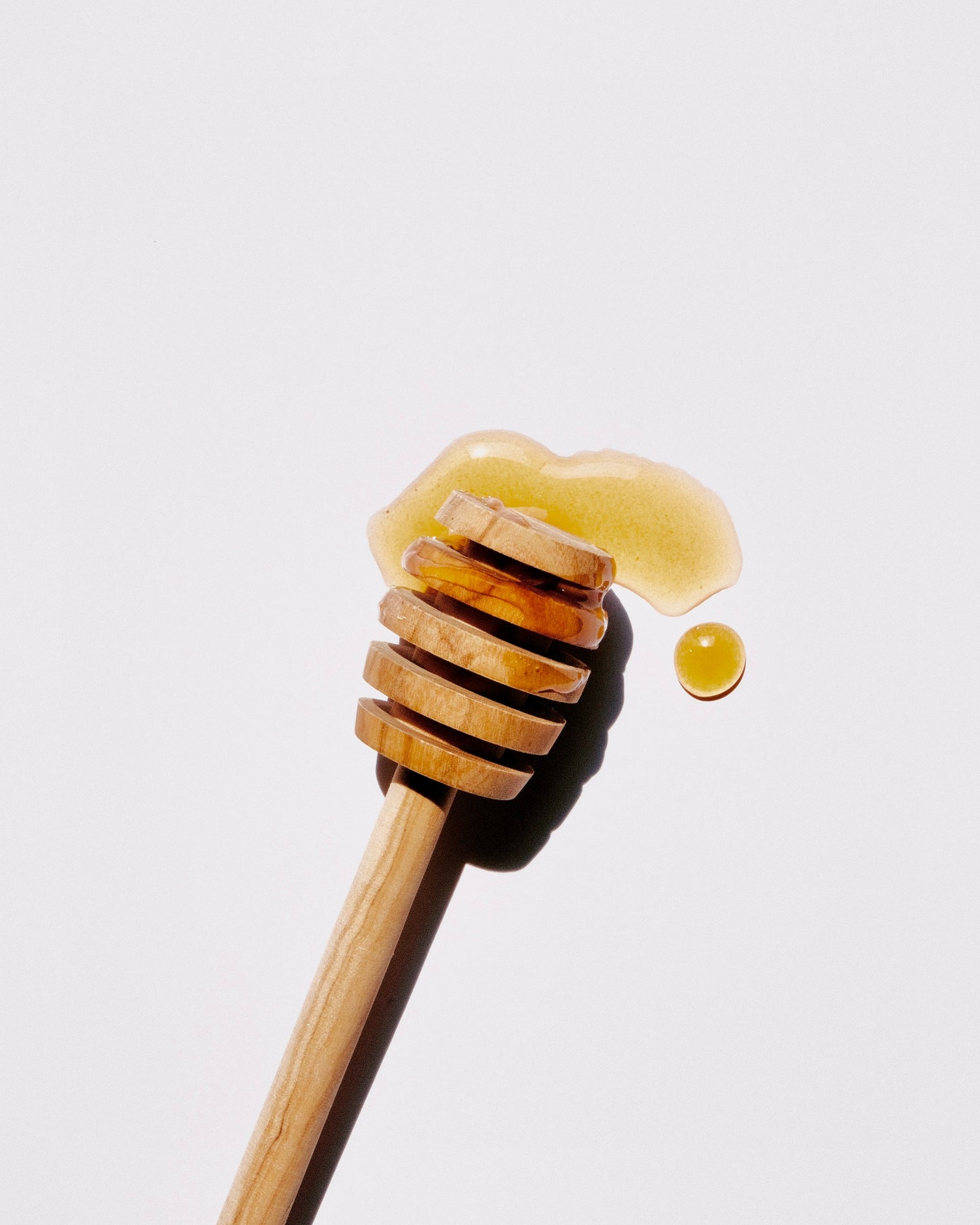
Difference organic vs. conventional
Why organic honey?
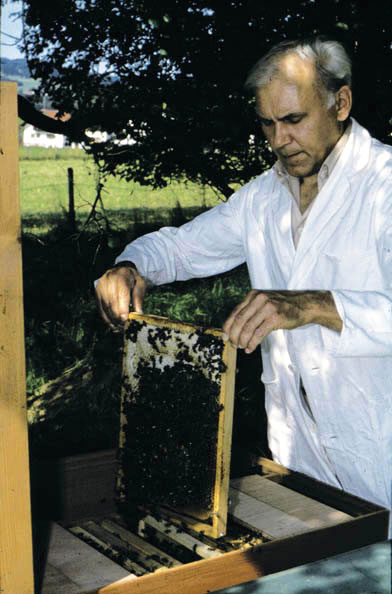
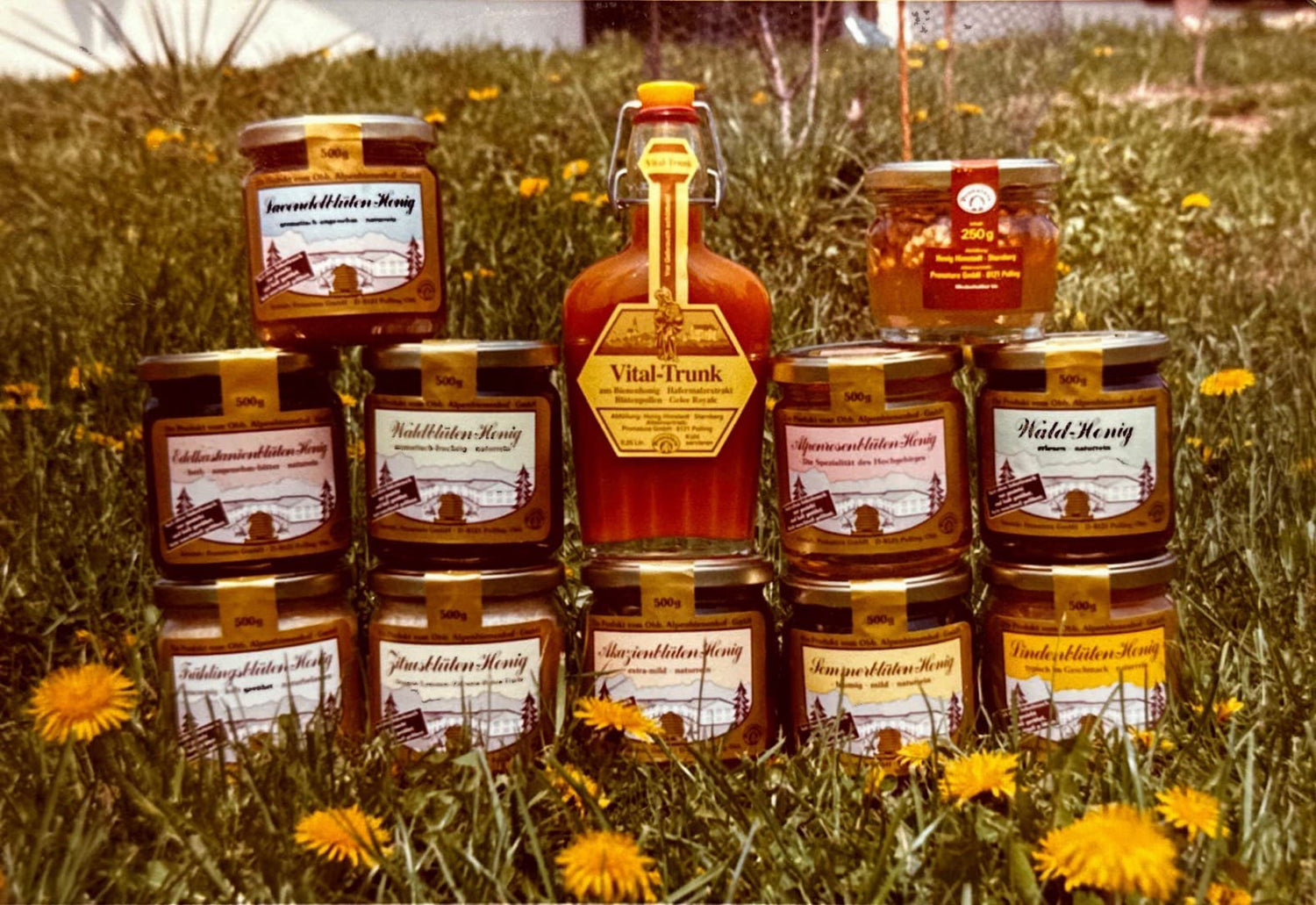
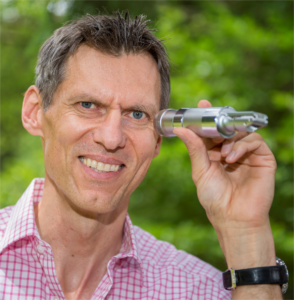
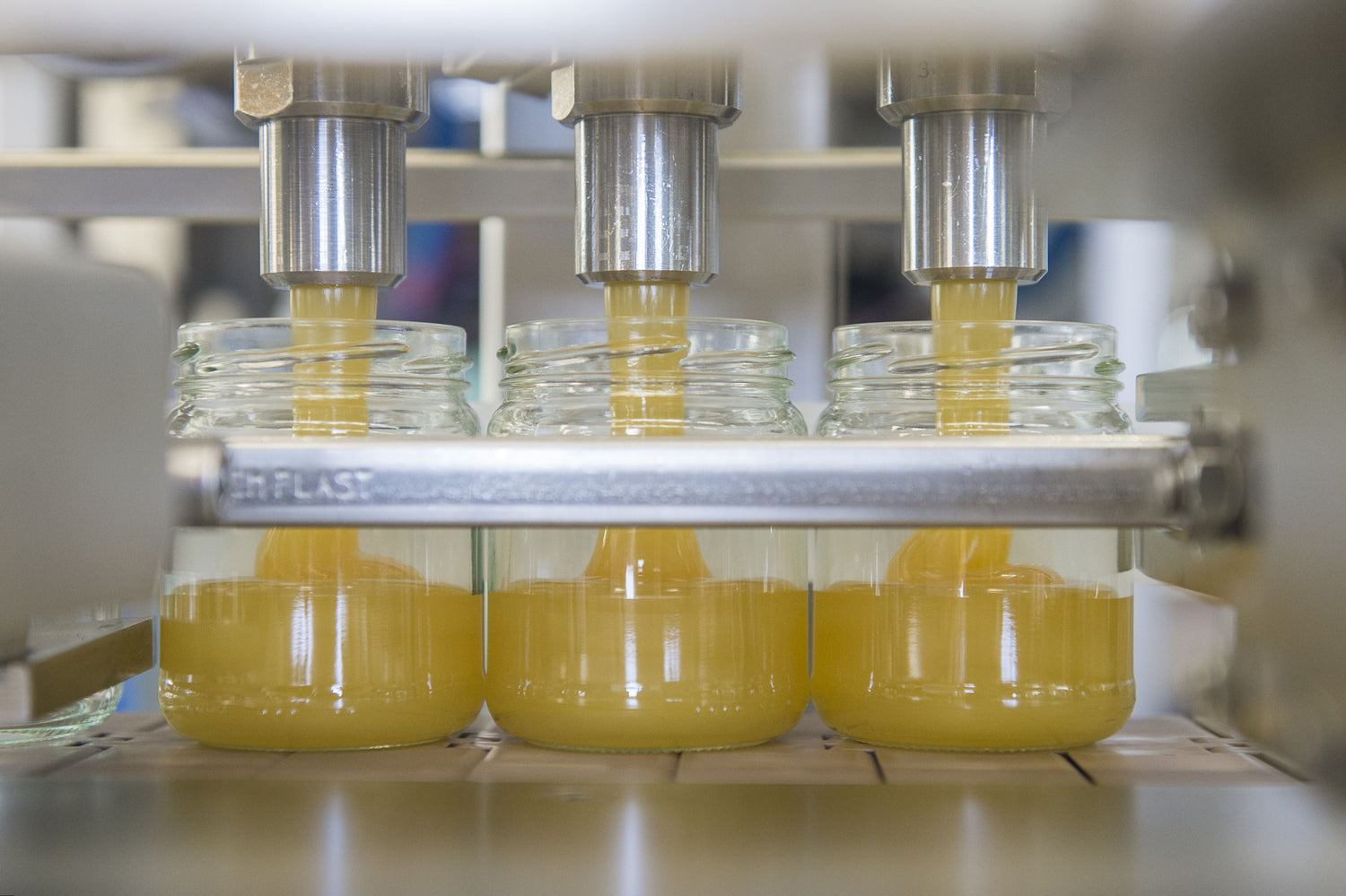
Familienunternehmen in dritter Generation
With the power of nature!
Gegründet im Jahr 1969 als Imkerei im oberbayerischen Polling, blicken wir heute auf eine jahrzehntelange Erfahrung von der Erzeugung bis zur Verarbeitung hochwertiger Imkereiprodukte zurück.
HOYER steht für Vertrauen, Genuss & Zuverlässigkeit und wir sind bestrebt, diese Werte fortzuführen und kontinuierlich weiterzuentwickeln.
Tauchen Sie ein in die Welt der Bienen und genießen Sie BIO Honig in bester Qualität.
FAQ - Häufig gestellte Fragen zu unserem Honig
Wie kommt es, dass einige Honige flüssig sind und manche cremig?
Honig ist klar und dickflüssig, wenn der Imker ihn aus den Waben schleudert. Und jeder Honig bildet irgendwann Kristalle, die ihn fest werden lassen. Je nach Zusammensetzung des Honigs geschieht dieser Übergang (Kristallisation) von flüssig nach fest innerhalb weniger Tage bis zu einigen Monaten. Die entscheidende Rolle spielt dabei das Verhältnis der beiden Zuckerarten Glucose und Fructose zueinander. Je mehr Glucose, also Traubenzucker, ein Honig enthält, desto schneller bilden sich Kristalle. Je mehr Fructose, also Fruchtzucker, enthalten ist, desto länger bleibt der Honig flüssig. Ein Verhältnis von ca. 1:1, wie es z.B. beim Rapshonig vorhanden ist, bedeutet eine sehr schnelle Kristallisation innerhalb weniger Tage. Bei einem überwiegenden Verhältnis des Fruchtzuckers von etwa 1,5:1 (z.B. Akazienhonig) bleibt dagegen der Honig über Monate oder sogar Jahre flüssig.
Wie wird Honig optimal aufbewahrt?
Honig ist dank seines hohen Zuckergehaltes und seiner natürlichen antibiotischen Wirkstoffe nahezu unbegrenzt haltbar. Dennoch sollten im Hinblick unter anderem auf Enzyme und Geschmack ein paar Grundregeln beachten werden:
- Am besten dunkel lagern
- Direkte Sonneneinstrahlung unbedingt vermeiden
- Bei Temperaturen zwischen 10° und 20° lagern
- Immer trocken und fest verschlossen lagern
Abhängig vom Traubenzuckergehalt kann flüssiger Honig nach längerer Zeit anfangen zu kristallisieren. Um den fest gewordenen Honig wieder zu verflüssigen, reicht es aus, ihn bei maximal 40° langsam im Wasserbad zu erwärmen.
Warum bietet HOYER Honig aus anderen Ländern an?
With an average of 1.0 kg per capita and year, Germans are among the world leaders in honey consumption. Due to climatic conditions, domestic production is not sufficient to meet the high demand for this sweet treat. In Germany, only about 15,000 - 20,000 tons of honey are harvested annually, while about 80 percent of the honey consumed is imported from regions of the world where climatic and botanical conditions are optimal for several harvests per year. Thus, many honeys come to Germany from the warmer countries of Europe as well as from Central and South America.
Thanks to the different climatic conditions and the accompanying flora, honey can be "harvested" all year round somewhere in the world. Thus, there is not only a year-round supply of honey, but also an unsurpassable variety. Honey can be compared to wine in this respect: the decisive factor for the taste, color and consistency of this natural product is its origin - both botanically and geographically.
